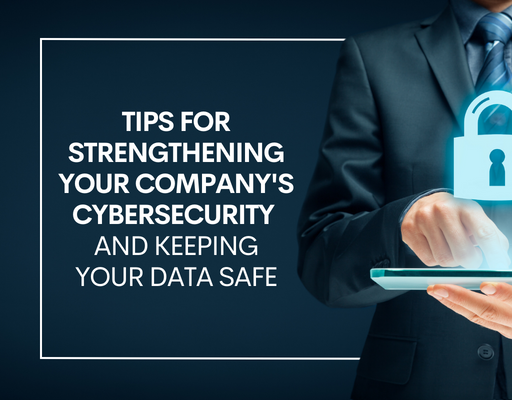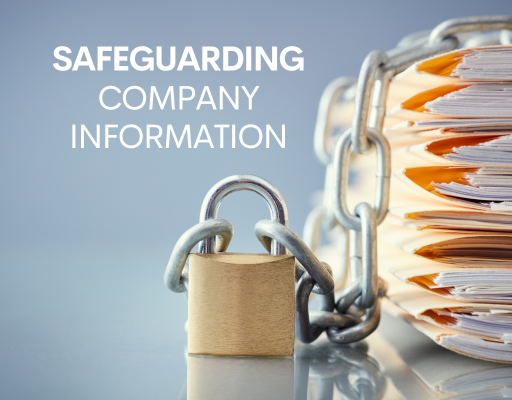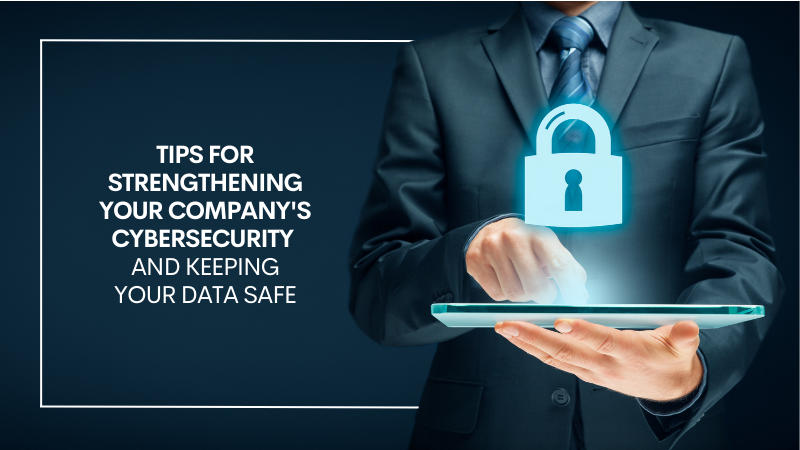Picture your business as a castle. The thick walls, solid gates, and watchful guards represent the cybersecurity measures you have in place to protect it. Just like in medieval times, when attackers would lay siege to castles, cybercriminals are constantly trying to breach your defenses to steal your valuable assets. In today’s digital age, these assets include your customers’ personal information, your company’s financial data, and your intellectual property.

As a business owner who operates in various industries, including business coaching, law, and real estate, I understand the importance of strong cybersecurity measures. Ensuring the protection of sensitive data in these sectors is crucial not only for maintaining the trust of clients but also for complying with legal and regulatory requirements.
In this article, I will discuss the importance of cybersecurity for businesses of all sizes and share tips to help you fortify your digital defenses. By the end, you will appreciate the significance of cybersecurity in any industry and feel empowered to take the necessary steps to keep your company safe. I highly recommend you make cybersecurity a priority so you can avoid some of the devastating losses some of my clients have faced from cyber attacks over the years.
The Importance of Cybersecurity in Business
Cybersecurity is critical for businesses in the modern world, regardless of the industry. No matter your sector, you must protect your sensitive data from cybercriminals who want to exploit it for personal gain. Here are just a few reasons why cybersecurity should be a top priority for all businesses:
1. Protecting customer data: Your customers entrust you with their personal and financial information. A data breach could not only lead to identity theft and financial loss for your clients but also severely damage your reputation.
2. Safeguarding company information: Your company’s confidential information, such as trade secrets, financial records, and employee data, is invaluable. Cybercriminals may target this information to harm your business or sell it to competitors.

3. Regulatory compliance: Industries like law and real estate have stringent regulations around data protection. Inadequate cybersecurity measures can result in severe penalties, including fines and loss of licenses.
4. Business continuity: Cyberattacks can cause downtime, disrupting your operations and leading to financial loss. Implementing robust cybersecurity measures can help ensure your business remains up and running, even in the face of adversity.
Tips to Keep Your Company Safe
Protecting your business from cyberthreats requires a comprehensive approach. Here are some steps you can take to enhance your cybersecurity measures:
1. Train your employees: Your staff is your first line of defense against cyberattacks. Provide regular training on cybersecurity best practices, such as recognizing phishing emails, creating strong passwords, and safeguarding sensitive data. Any time you see something that was a scam, show it to your employees at future meetings.
2. Keep software updated: Ensure that all software, including operating systems and applications, is up to date with the latest security patches. This helps to protect against known vulnerabilities that cybercriminals may exploit.
3. Implement strong access controls: Limit the number of employees who have access to sensitive data and use strong authentication methods, such as multi-factor authentication, to prevent unauthorized access. As one example, if you ever do wire transfers, make sure to use email plus phone verification (or two methods) to verify the transaction was authorized. I once had a client lose all money in their business savings and operation accounts due to a fraudulent email requesting a wire transfer to the CFO.
4. Regularly back up data: Regularly backing up your data ensures that you can quickly recover from a ransomware attack or other data loss incidents. Store backups offsite or in the cloud for added protection. I learned the importance of offsite backups after my house fire and thankfully had done so where I didn’t lose any data.

5. Use encryption: Encrypt sensitive data, both at rest and in transit, to prevent unauthorized access. This is particularly important for industries that handle confidential client information, such as law firms and real estate agencies.
6. Hire a cybersecurity expert: Consider hiring a dedicated cybersecurity professional or outsourcing to a managed security service provider to assess your current security measures, identify vulnerabilities, and recommend improvements.
7. Develop an incident response plan: Create a detailed plan for how your company will respond to a cyber incident. This should include procedures for containing the breach, assessing the damage, notifying affected parties, and recovering your systems. Regularly review and update your plan to ensure it remains effective.
8. Conduct regular security audits: Periodically evaluate your cybersecurity measures to identify potential weaknesses and areas for improvement. This could involve penetration testing, vulnerability assessments, making sure you recognize all administrator accounts, or other security audits performed by cybersecurity professionals.
9. Secure your networks: Implement network security measures, such as firewalls, intrusion detection and prevention systems, and secure Wi-Fi connections. Regularly monitor your network for suspicious activity and take action to address potential threats.
10. Stay informed about the latest threats: Cyber threats are constantly evolving, and staying informed about the latest trends and tactics can help you stay ahead of cybercriminals. Subscribe to industry newsletters, attend webinars, and participate in cybersecurity forums to keep your knowledge up to date.
Applying Cybersecurity in Your Industry
In industries such as business coaching, law, and real estate, where you handle sensitive client data and face strict regulatory requirements, it is vital to implement robust cybersecurity measures. By following the tips outlined in this article, you can help protect your clients’ data, maintain your reputation, and ensure business continuity.
To illustrate the importance of cybersecurity, consider this quote from former US Secretary of Defense, Leon Panetta: “The next Pearl Harbor that we confront could very well be a cyberattack.” While this statement may seem dramatic, it underscores the potential impact of cyber threats on businesses and national security.
As a business owner operating in multiple industries, I have experienced firsthand the importance of strong cybersecurity measures. Cybersecurity is no longer a luxury but a necessity for businesses of all sizes and industries. By implementing robust security measures, educating your employees, and staying informed about the latest threats, you can help protect your company from the ever-growing risk of cyberattacks. Don’t wait until it’s too late – take action today to secure your digital castle and keep your valuable assets safe.








